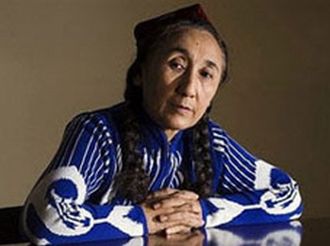
Sino-Turkish Relations Normalize
Publication: Eurasia Daily Monitor Volume: 6 Issue: 160
By:

During the violent ethnic clashes between the Turkic Uyghurs and Han Chinese, in China’s northwestern province of Xinjiang on July 5-6, Sino-Turkish relations soured as a result of Turkish public opinion and Prime Minister Recep Tayyip Erdogan harshly criticizing the Chinese government’s handling of the riots.
The Turkish Foreign Minister Ahmet Davutoglu contacted his Chinese counterpart Yang Jiechi to express concern over these issues. The Turkish press revealed that to avoid upsetting the Chinese leadership Ankara twice refused to issue a visa to Rabia Kader, the millionaire businesswoman-turned-political dissident living in the United States -whom Beijing accuses of masterminding the Urumqi riots. Yet Erdogan stated that a new visa application would be accepted. Kader responded by telling the Cihan news agency that she is planning to visit Turkey soon, and that she believed "Turkey would not sell out the Uyghurs, who have Turkish blood in their veins" (www.opendemocracy.net, August 5). During the crisis Erdogan described Beijing’s reaction against the Uyghurs as "nearly genocide" (adeta soykirim). In response, the Chinese foreign ministry spokesman Qin Gang said the accusation of genocide simply did not make sense. The semi-official China Daily ran an editorial with the title: "Do not twist facts," and alleged that Erdogan’s remarks, "constitute interference in China’s internal affairs" (EDM, July 8, 15).
In the following weeks the Chinese embassy in Ankara started conducting intensive public diplomacy to reduce the damage to bilateral relations in the aftermath of the Uyghur riots. As the first step a few journalists from the state owned Anadolu Ajansi and TRT television station and Turkish journalist associations were invited to visit China, including Urumqi where the riots took place. After the visit Anadolu Ajansi softened its language and avoided criticizing the Chinese government. It cited a Chinese doctor as saying that during the riots 168 wounded were treated in his hospital, and 11 of those were Uyghur and 157 Han Chinese (Anadolu Ajansi, July 27), echoing the rhetoric that the Chinese government has used.
The Chinese government also invited foreign ambassadors to Beijing and Xinjiang province in order to show that it had not abused the Uyghurs. Turkey’s Ambassador to China Murat Salim Esenli was also invited. Esenli told International China Radio that the riots in Urumqi were planned by forces inside and outside of the country, who intended to harm the reputation of Xinjiang province. He also stated that Turkey respects the territorial unity of China (Star, August 12).
Seyyit Tumturk, the Deputy Chairman of the World Uyghur Congress, told Jamestown that Esenli’s comments did not reflect the Turkish government’s position. It does not indicate that the Turkish government has shifted its position toward China. "Regardless of what Esenli says, the Turkish government and its people firmly stand against what the Chinese government has done in Urumqi" Tumturk said.
In parallel with the shift in tone in Turkish diplomacy toward the Chinese government, the media has also downplayed its criticism against Beijing. During the past month, the Turkish press has almost forgotten what happened in Urumqi. Despite the fact that the press slammed the Chinese government in the first half of July, only two negative reports have since appeared in the Turkish press. One of these indicated that the Chinese government had resumed transferring young Uyghur girls to the eastern provinces of China to work in their factories. However, Uyghurs consider this policy as an assimilation project by the Chinese government (Zaman, August 10). Moreover, reportedly the Police Chief of Xinjiang province Dai Sujun was promoted to the second highest rank in the Peoples’ Armed Police Organization (Milliyet, August 14).
It will be clear whether Turkey has rescinded its criticism after Rabia Kader applies for a visa to visit the country. Tumturk said that the World Uyghur Congress is planning to bring her to Turkey in October 2009. He also suggested that Turkey was the only country that fully supported the Uyghur Turks: "We are waiting for the Turkish parliament to start its new session in the fall to apply for the parliament to invite Kader with its full support" Tumturk told Jamestown.
The Uyghur diaspora in Turkey is powerful and raising its nationalistic rhetoric this fall will further ignite the political climate in Ankara. Despite the fact that the Chinese government is actively using PR to reduce anger toward Beijing, the Uyghur associations might eclipse the Chinese embassy’s effort if they succeed in bringing their demands to the attention of the parliament and invite Rabia Kader to Turkey.




